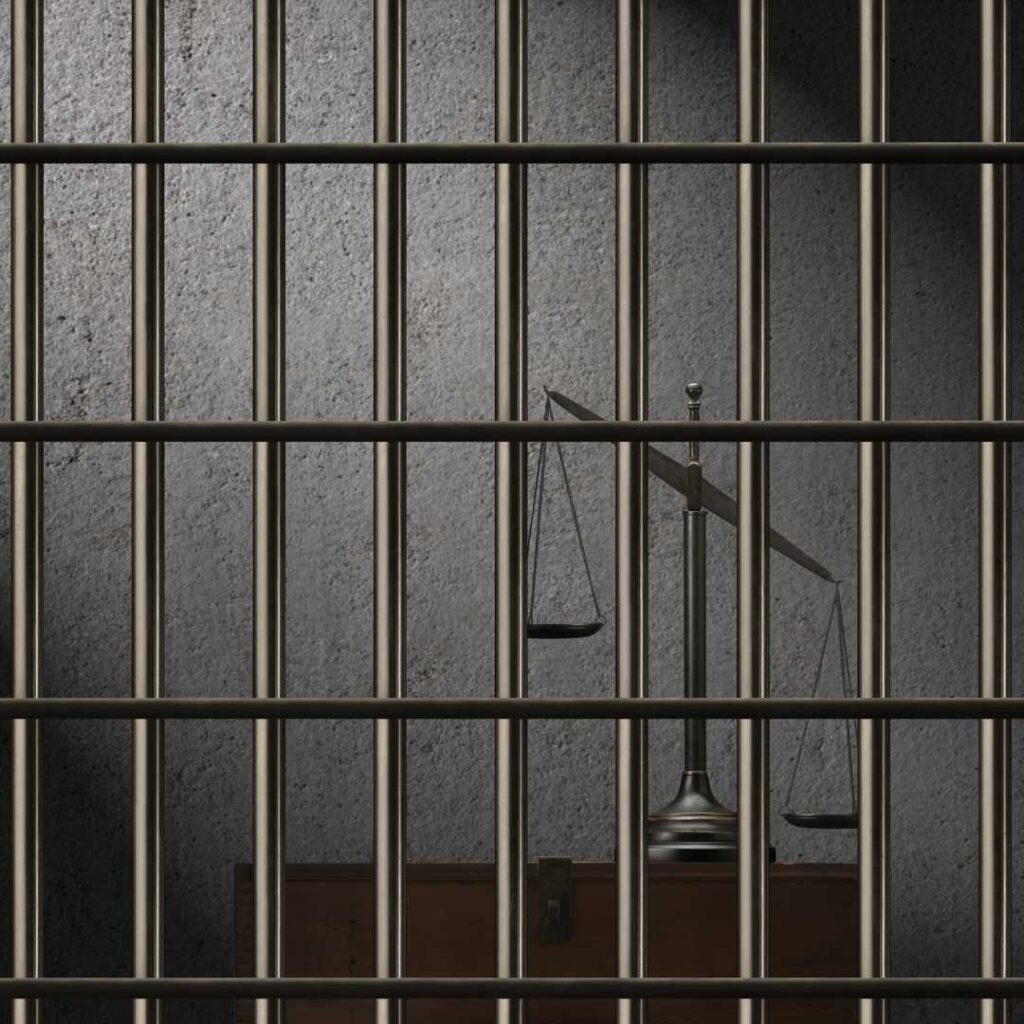Florida Felony Defense Lawyer - Clearwater Law Firm
A felony charge in Florida is a serious matter that can result in lengthy prison sentences, hefty fines, and lifelong consequences. If convicted, you could face loss of voting rights, employment difficulties, housing restrictions, and a permanent criminal record.
At McGuire Megna Attorneys, we understand the high stakes of felony charges, and we fight aggressively to protect your freedom. Our experienced criminal defense lawyers have a deep knowledge of Florida felony laws and work tirelessly to build strong legal defenses, negotiate reduced charges, and fight for case dismissals whenever possible.
Don’t face felony charges alone—call us today for a free consultation and start defending your future!
Understanding Felony Charges in Florida
In Florida, crimes are classified as either misdemeanors or felonies. The key differences between the two are:
✔ Felonies – More serious offenses, punishable by over one year in prison (state penitentiary).
✔ Misdemeanors – Less severe crimes, punishable by up to one year in county jail.
Felony convictions come with harsh penalties, including prison time, loss of civil rights, and long-term damage to your reputation. That’s why having an experienced criminal defense lawyer is essential to fighting these charges.
CONTACT US NOW
REQUEST A RISK-FREE CONSULTATION TODAY.
Types of Felonies in Florida
Florida law categorizes felonies into five levels of severity, with penalties ranging from five years in prison to life imprisonment or the death penalty.
1. Capital Felonies
✔ Punishable by: Life imprisonment without parole or the death penalty.
✔ Examples:
First-degree murder
Capital drug trafficking
Armed kidnapping
Sexual battery on a minor
2. Life Felonies
✔ Punishable by: Life in prison and fines up to $15,000.
✔ Examples:
Aggravated sexual assault
Armed robbery with serious injury
Human trafficking involving minors
3. First-Degree Felonies
✔ Punishable by: Up to 30 years in prison and fines up to $10,000.
✔ Examples:
Carjacking
DUI manslaughter (leaving the scene)
Home invasion robbery
4. Second-Degree Felonies
✔ Punishable by: Up to 15 years in prison and fines up to $10,000.
✔ Examples:
Aggravated battery
Sexual battery without serious injury
Drug possession with intent to distribute
5. Third-Degree Felonies
✔ Punishable by: Up to 5 years in prison and fines up to $5,000.
✔ Examples:
Grand theft (over $750)
Possession of a controlled substance
Resisting arrest with violence
Even a third-degree felony conviction can impact your life permanently—that’s why fighting your charges is critical.

What Happens After a Felony Arrest in Florida?
The legal process for felony charges can be overwhelming. Here’s what to expect:
✔ Arrest & Booking – You are taken into custody, processed, and placed in jail.
✔ First Appearance Hearing – A judge determines bail and release conditions.
✔ Arraignment – You are formally charged and enter a plea.
✔ Pre-Trial Proceedings – Your attorney gathers evidence, files motions, and negotiates with prosecutors.
✔ Trial or Plea Bargain – Your case is either tried in court or resolved through negotiation.
✔ Sentencing – If convicted, the judge determines prison time, fines, or probation.
Having an experienced felony defense attorney can challenge evidence, negotiate reduced charges, or get your case dismissed entirely.
How a Felony Conviction Can Impact Your Life
A felony conviction can result in:
❌ Loss of Civil Rights – You may lose your right to vote, own firearms, or hold certain licenses.
❌ Difficulty Finding Employment – Most employers conduct background checks, making job opportunities harder to secure.
❌ Housing Restrictions – Many landlords refuse to rent to convicted felons.
❌ Higher Insurance Rates – A criminal record can increase car insurance premiums.
❌ Ineligibility for Government Assistance – Convictions for drug-related felonies can disqualify you from public benefits and housing programs.
At McGuire Megna Attorneys, we fight to protect your future and, in some cases, work to reduce felonies to misdemeanors or pursue expungement opportunities.

Defenses Against Felony Charges in Florida
Every felony case is different, but we use proven defense strategies to fight for your rights, including:
✔ Lack of Evidence – If the prosecution cannot prove guilt beyond a reasonable doubt, your case may be dismissed.
✔ Illegal Search & Seizure – If law enforcement violated your Fourth Amendment rights, evidence may be suppressed.
✔ Mistaken Identity or False Accusations – We expose inaccurate witness testimony or fabricated claims.
✔ Self-Defense or Defense of Others – If you acted lawfully to protect yourself or someone else, we can argue self-defense.
✔ Violation of Constitutional Rights – If police coerced a confession or violated Miranda Rights, we challenge their tactics.
Protect Your Future – Call McGuire Megna Attorneys Now
A felony conviction can permanently alter your life—but an experienced defense attorney can make all the difference. At McGuire Megna Attorneys, we fight to:
✔ Reduce or dismiss felony charges
✔ Protect your rights and freedoms
✔ Keep you out of prison
📞 Call now for a free consultation with an experienced Florida felony defense lawyer!
GET YOUR RISK FREE CONSULTATION NOW
DON'T WAIT. GET THE JUSTICE YOU DESERVE. CONTACT US TODAY.
Personal Service, Prompt Attention, Experience and Expertise.
John McGuire’s commitment is to provide you with the prompt, personal attention you deserve at every stage of representation. We take the time to listen to your concerns and provide you with the advice you need to proceed in the right direction, and we keep you informed as your case develops.
Want to sound smart with your friends?
If we don’t win, you don’t pay a penny. When tragedy strikes, our Personal Injury Law Firm is here to help you. Get a risk-free consultation today.
Frequently Asked Questions
Facing a felony charge in Florida is a serious matter with potentially life-changing consequences. From long-term imprisonment and steep fines to the loss of civil rights like voting or owning a firearm, a felony conviction can follow you for the rest of your life. Understandably, those accused of felony offenses often have many questions about what to expect, their legal rights, and potential defense options. Below, we address some of the most commonly asked questions about felony charges in Florida, including penalties by degree, how charges can be reduced, and what to do if you’ve been arrested. If you’re facing felony charges, contact McGuire Megna Attorneys right away for experienced and aggressive criminal defense.
Yes! Some felony charges can be reduced or dismissed through plea negotiations or legal motions.
Forever, unless expunged or sealed, which is only possible in certain cases.
Florida’s Three Strikes Law imposes harsher penalties, including life imprisonment for repeat violent felonies.
It depends on the charge. Some felonies allow bail, while others (like capital felonies) require you to remain in custody.
No. Convicted felons lose firearm rights but may apply for restoration after meeting eligibility requirements.
Yes. Some felonies can result in deportation or inadmissibility for visas or citizenship.
